Equality In Audio Pact: What Can It Do For Your Podcast?
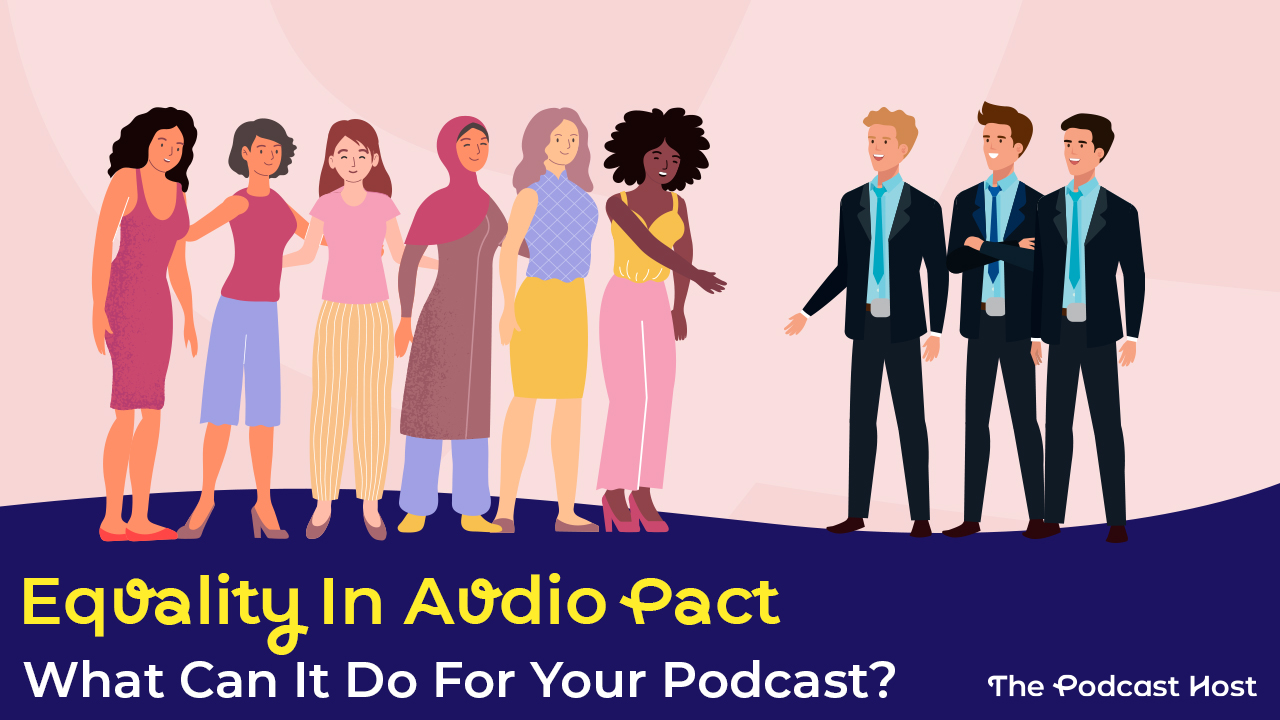
At The Podcast Show 2023 in London, Content Is Queen founder Imriel Morgan announced that the Equality in Audio Pact (EAP) is starting ‘Phase Two’, with new stewardship.
For podcasters in the UK, this news indicates a rejuvenated, varied podcast ecosystem. However, in the US, the EAP hasn’t been discussed much at all, let alone reaching phase two. This is surprising, since it has everything to do with wage and hiring transparency, and collective bargaining plays a big role to protect podcasters.
So what is The Equality in Audio Pact, why does it matter, and what does the EAP do for independent podcasters?
What is The Equality in Audio Pact?
The Equality in Audio pact started in June 2020. In an interview for The Squeeze with Skye Pillsbury, Renay Richardson recalled, “When the George Floyd murder happened, I looked around and everyone was saying “we hear you, we’re listening and learning.” So she, along with the team at Broccoli Productions, brainstormed five things that they thought the audio industry could do to improve diversity and parity.
The five actions for audio companies they came up with are remarkably straightforward:
Equality in Audio Pact: 5 Key Pledges
1. Pay interns/No longer use unpaid interns.
2. Hire LGBTQIA+, black people, people of color and other minorities on projects not only related to their identity.
3. If you are a company that releases gender pay gap reports, release your race pay gap data at the same time.
4. No longer participate in panels that are not representative of the cities, towns, and industries they take place in.
5. Be transparent about who works for your company, as well as their role, position and permanency.
These actions would help to create equality in hiring and wages, and also wider perspective in creating content. At least, that was the original plan.
Three years later, the Equality in Audio Pact has over 350 signatories. The list includes podcasters, podcast networks, companies that provide podcasting products & services, and legacy media such as The Guardian and The BBC.
Problem solved, right?
Unfortunately not.
Two years after creating the EAP, Richardson said, “Loads signed it — around 400 — but almost immediately, people started breaking the pact.” Promises were made on social media, but not kept in real life.
Why Does The Equality in Audio Pact have a ‘Phase Two’?
The short reason for Phase Two of the EAP is a change in stewardship.
UK Audio Network and Content is Queen will shepherding Phase Two of EAP. They’ll make sure that the audio drama industry will keep transparency, equality and diversity front of mind when making hiring decisions.
The long reason has to do with accountability. In a recent Open Letter To The Audio Industry, Imriel Morgan pointed out that not enough progress was happening.
“The diverse and niche audiences we cultivate aren’t just crucial for optics; they are instrumental in driving the industry’s overall growth and widening the scope for increased ad revenue… It’s time to transform these pledges into action—into meaningful partnerships and investments in the ecosystem that genuinely support the diverse talents driving our industry forward.”
Imriel Morgan, An Open Letter to the Audio Industry: Time to Turn Words into Action.
The most glaring example of promises made and not kept was Spotify’s $100 million Creator Equity Fund. Over a year after creating the fund, Spotify had spent little of the fund on projects to aid diversity in podcasting. It’s unclear if any other signatories made big promises and didn’t deliver.
Why Does The EAP Phase Two Matter Right Now?
Particularly since 2019, the podcast market is growing. But, wages for women and marginalized groups are falling. So as William Goldman wrote in All The President’s Men, we need to ‘follow the money.’
According to Edison Research’s Infinite Dial report, the demand for podcasts has grown since 2013.
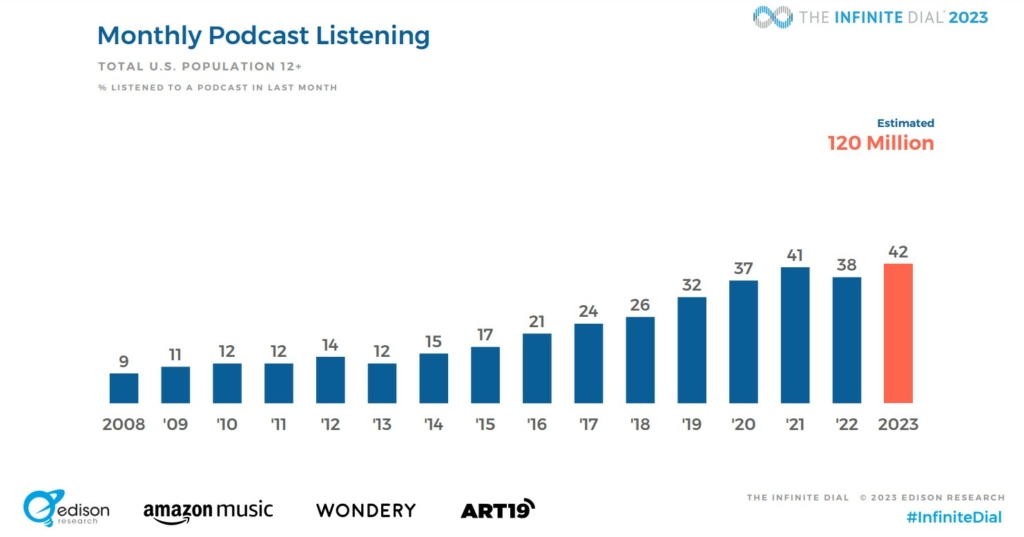
Despite a dip in 2022 as pandemic restrictions loosened, as of March 2023 (the most recent Infinite Dial report) podcast listening statistics continue to grow.
In 2020, the IAB expected ad revenue to increase by $1 billion, and $2 billion by 2023.
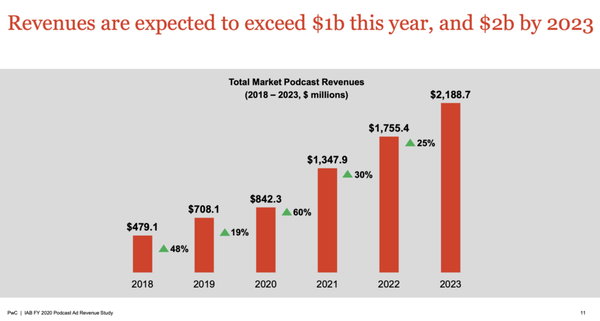
Podcast ad spending hasn’t been as high as projected (did they think we’d all be in lockdown forever?). But, it has grown.
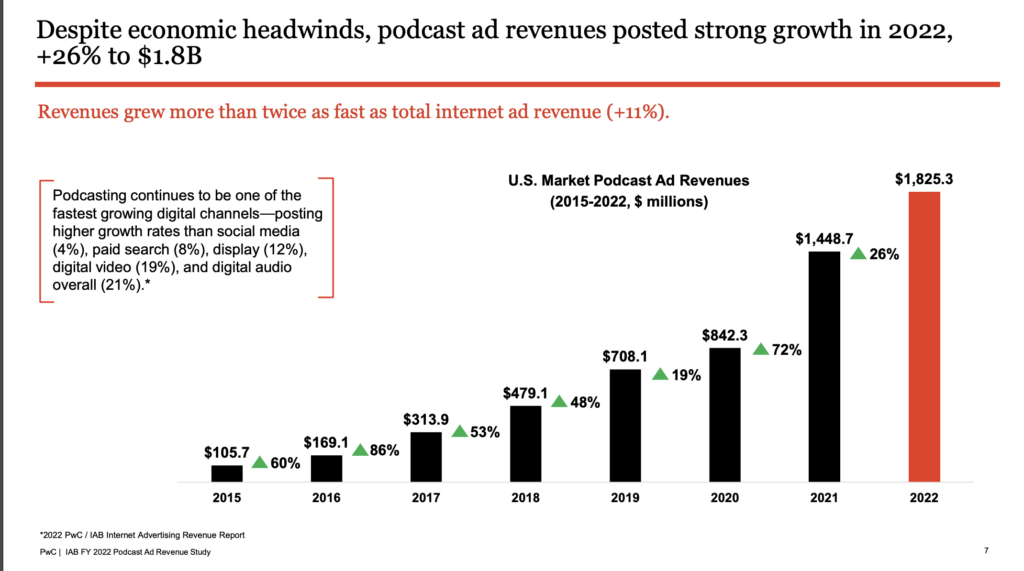
So, ad sales are solid, and podcast demand is high. Podcasting companies should have plenty of wealth to share, right?
Sometimes a rising tide lifts all boats, and other it sinks some of them.
Podcasters Make The Inventory, But Don’t Share in The Wealth
Legacy media has reported that “the dumb money is gone” from podcasting, though independent podcasts continue to earn audiences. If independent podcasts went away, it would benefit legacy media’s advertising budgets.
Podcasting companies get scuttlebutt from shareholders and legacy media press. They see current ad sales not meeting 2020’s (admittedly unrealistic) projections, panic, and cut back.
Meanwhile, wages for women and other marginalized groups are falling. The UK Audio Network’s State of the Audio Industry 2023 surveyed changes in wage data for 2020-2023. The shortfall is eye-watering.
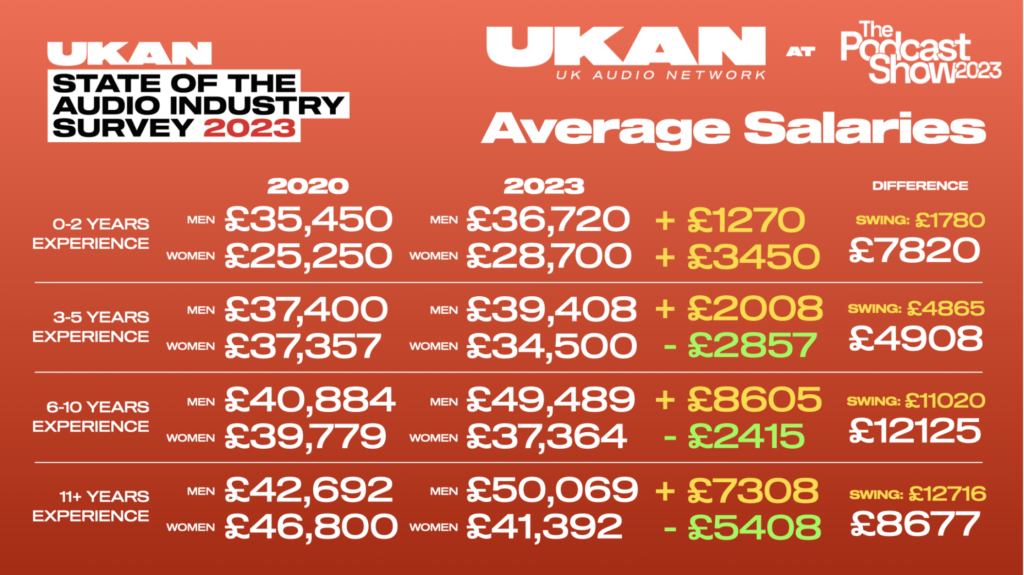
I’ll make a long spreadsheet short: In the audio industry, white men’s wages have increased. Meanwhile, the wages of women and people of color have decreased. But, women and people of color provide podcasts and audiences that boost revenue and improve corporate optics. Morgan’s letter calls for “meaningful partnerships and investments in the ecosystem that genuinely support the diverse talents driving our industry forward.”
What Can Podcasting Companies Do To Honor The Equality in Audio Pact?
The EAP asks for five actions related to hiring and wage transparency. Imriel Morgan’s open letter is simply asking corporations profiting from independent podcasters to follow through on their pledges. The letter asks for transparency, accountability, investment, and partnership, with marginalized podcasters.
The letter also asks for education: “for industry professionals to understand better systemic racism, misogyny, and other forms of discrimination and to actively work towards dismantling these barriers.”
What Does The Equality in Audio Pact Mean for Independent Podcasters?
Why should you care, or better yet, sign the pact?
Let’s get the selfish answer out of the way first: Wouldn’t you want to be associated with this list of companies and podcasters? I know I would.
Here’s a less selfish reason: standards and accountability in the podcasting industry matter.
The pledges from the original pact are specific to hiring and wages. What if your podcasting concern is so independent that you can’t hire or compensate people to work for you?
The big corporations here command attention. But, many of the signatories on this list are indie networks (e.g., Multitude or Fable and Folly) or indie podcasters.
One of the indie podcasters who signed was Kate Wallinga, the creator and host of Ignorance Was Bliss. If you like true crime, you should give her show a try. I asked Wallinga why she signed the Equality in Audio pact. She said,
“Fundamentally, I believe that one doesn’t need to be a part of a bigger conglomerate to believe that every voice matters.
Also, I signed it to hold myself accountable. I need to talk to people from a variety of backgrounds and abilities, both because, again, every story matters, and because certain demographics have to fight harder to get their voices heard — which is violently unfair and unnecessary.
I want [podcasting] to be a more level playing field than other industries, because we have the opportunity to build something special from the ground up. Diverse voices, niche topics, few rules.
I’m geared toward a more community mindset than a competitive one, and the more I can lift up the work of others, the better.”
— Kate Wallinga
Wallinga wants there to be a wide variety of stories, voices, and options in podcasting. Anyone who wants more interesting podcasts does. To make sure that happens, not only the folks who can afford to hire but also the solo podcasters, should commit to diversity and equality in podcasting.
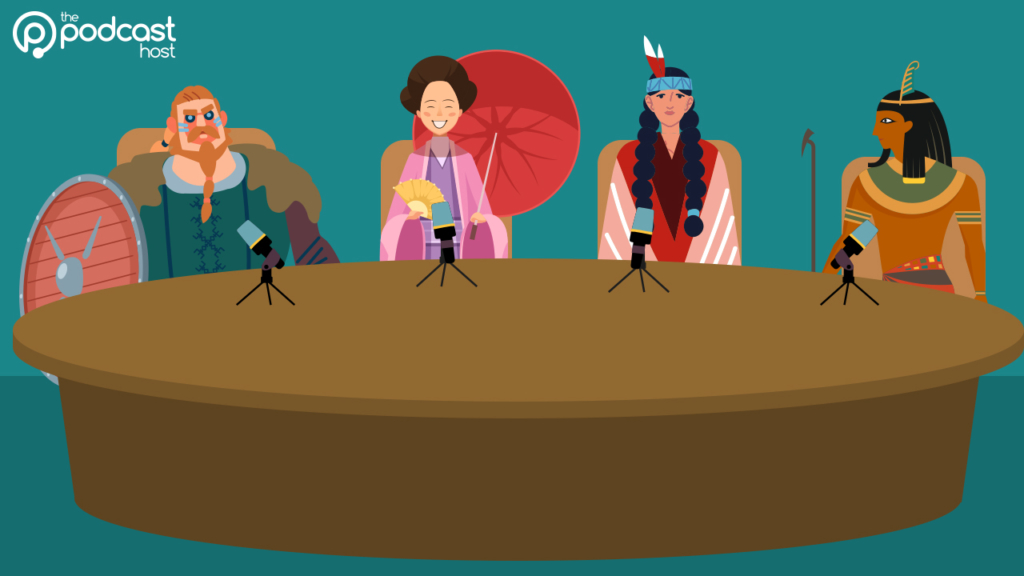
The Equality in Audio Pact has Your Back. Will You Support It?
When podcasters help each other, consume each other’s work, and cross-market, we enrich our own work – whether we plan to or not. Podcasting is an opportunity to be different from the status quo. When we listen to the same old two-mics-one-opinion podcasts, discourse may as well lay down and die.
The Equality in Audio Pact is about hiring and wage transparency. It’s also about elevating a wide variety of voices, stories and perspectives. As the EAP expands into phase two, more podcasters owe it to themselves to stand up for their peers.
So as independent podcasters, we can do our bit to support the EAP by sharing within our networks. And if you’re a business (or work for a business) affiliated with the audio industry, you can sign the pact here.
